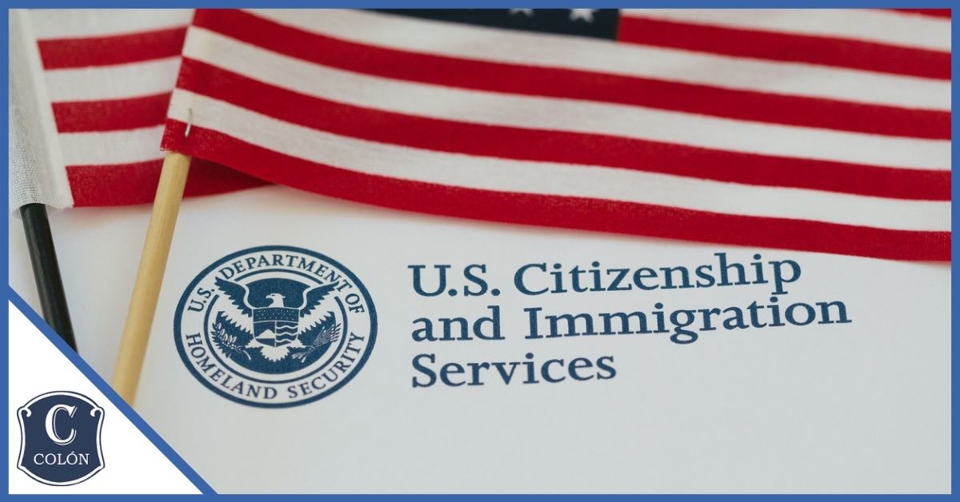Securing a family-based visa can be a complex and emotional process, but understanding the steps involved helps ease this challenging path. South Carolina applicants often face distinct hurdles, from navigating visa categories to handling delays and documentation. Families can prepare effectively by identifying potential issues early and making the process smoother. This guide outlines the hurdles family-based visa applicants face and shares solutions to help you overcome them confidently and precisely.
Understanding Family-Based Visa Categories
Immediate Relatives vs. Family Preference
Family-based visas fall into two main groups: immediate relative visas and family preference visas. Immediate relative visas, such as IR-1 for spouses or IR-2 for children under 21, are not capped annually and are processed faster. Family preference visas, like F1 for unmarried adult children of U.S. citizens or F4 for siblings, have annual limits, leading to potential delays. Each category has specific eligibility criteria, and understanding these distinctions is key. Applicants in Greenville, SC, need to comprehend which category applies to them to anticipate processing timelines and requirements for their unique case.
Types of Family-Based Visas
Family preference visas are classified into specific tiers, including F1, F2A, F2B, F3, and F4, each addressing varying relationships and immigration statuses. Visas like F2A for spouses or children of permanent residents are highly sought after, often leading to longer wait periods. Each visa requires distinct documents and steps, such as sponsorship forms and proof of financial capacity. Awareness of waiting times and common challenges, such as in the F4 category for siblings, can empower South Carolina applicants to stay prepared and patient throughout the process.
Common Challenges Facing Applicants
Lengthy Processing Times
Processing times remain one of the biggest difficulties for family-based visa applicants, influenced by the visa type, applicant's home country, and USCIS workload. Delays at local USCIS offices in South Carolina add another layer of complexity. Applicants can mitigate some delays by submitting error-free forms and providing complete documentation upfront. Staying informed about processing estimates on the USCIS website can also help manage expectations and plan accordingly for longer wait periods.
Documentary Proof and Evidence
Gathering and submitting accurate documents can make or break a visa application. Applicants must prove familial ties through birth records, marriage certificates, or adoption decrees. If translations are required, Greenville's diverse support services can ensure accuracy. Compiling a well-organized evidence packet tailored to USCIS guidelines is highly recommended to avoid setbacks. Missing or incomplete documents are often the cause for requests for evidence, so thorough preparation is critical to keep the process moving smoothly.
Legal and Bureaucratic Obstacles
Navigating USCIS and Consular Offices
Engaging with USCIS and consular offices can be overwhelming due to procedural complexities and communication barriers. Frequent use of USCIS's online resources and maintaining organized application records can help applicants efficiently track their progress. Knowing how and when to connect with USCIS or consular offices, especially in South Carolina, ensures faster resolution of potential issues. Promptly responding to requests, including interviews or additional documentation, is essential to avoid unnecessary delays or complications.
Addressing Denials and Requests for Evidence (RFEs)
Visa denials and RFEs are common hurdles that disrupt the application process. Denials often stem from incomplete forms, insufficient documents, or sponsorship issues. When faced with an RFE, applicants must reply with detailed, accurate information that addresses all deficiencies outlined by USCIS. Working with an immigration lawyer significantly increases the chances of overcoming a denial or RFE, as they provide strategic direction for appeals and detailed responses. Greenville's legal experts can guide applicants with personalized strategies to resolve complex cases effectively.
Cultural and Language Barriers
Language Support Services
Language barriers can add difficulty to an already challenging process for non-English speakers. Translation services and bilingual assistance in Greenville can help applicants meet USCIS's documentation and communication requirements. Access to these services ensures clarity and accuracy throughout the process. Local organizations offering these resources reduce stress and help individuals confidently engage with immigration officials, making this aspect of the process more manageable.
Cultural Sensitivity and Misunderstandings
Cultural differences can occasionally cause misunderstandings during interviews or when providing information to immigration officials. Applicants can benefit from cultural sensitivity training or workshops to better align with U.S. norms when navigating these interactions. Understanding cultural nuances also helps avoid unintentional missteps and fosters clearer, more positive communication. Consulting with immigration professionals experienced in cross-cultural issues can enhance applicants’ preparedness and ease their overall experience in the immigration process.
Resources and Support Networks
Seeking Assistance from Immigration Lawyers
Navigating the family-based visa process without expert guidance can be daunting. Immigration attorneys in South Carolina bring critical insight into local immigration procedures and challenges. From document preparation to handling appeals or RFEs, experienced lawyers offer tailored solutions for applicants' specific needs. Families in Greenville benefit greatly from working with attorneys knowledgeable about both procedural requirements and local support networks, ensuring a smoother visa application process.
Community and Non-Profit Assistance
South Carolina has numerous community and non-profit organizations dedicated to immigrant support. From offering free legal aid to providing translation services and visa workshops, these groups are invaluable resources. Greenville residents should consider leveraging these networks for additional guidance throughout their immigration journeys. These organizations foster a sense of community and often become essential partners in helping families secure their visas.
Stay Updated with Immigration Policies
Immigration laws and policies shift frequently, so staying informed about updates is critical for successful applications. Applicants should regularly check USCIS announcements, read immigration blogs, and follow local news in South Carolina for the most relevant updates. Signing up for email alerts or connecting with legal professionals ensures applicants stay proactive and learn about changes that could affect their cases. Staying informed means staying prepared, making policy updates an integral part of the application process.
Family-Based Immigration Lawyer in Greenville, SC
Navigating the family-based visa process doesn’t have to be overwhelming. At Colón Law Firm in Greenville, SC, we specialize in personalized immigration services to guide families through every step of this challenging process. From preparing your application to addressing complex challenges like RFEs or delays, our compassionate and professional team is here to help. With results-oriented representation, we work to ensure your family reunification goals become a reality. Reach out today at (864) 697-2870 to schedule a consultation, and trust us to guide your immigration journey with care and precision.







